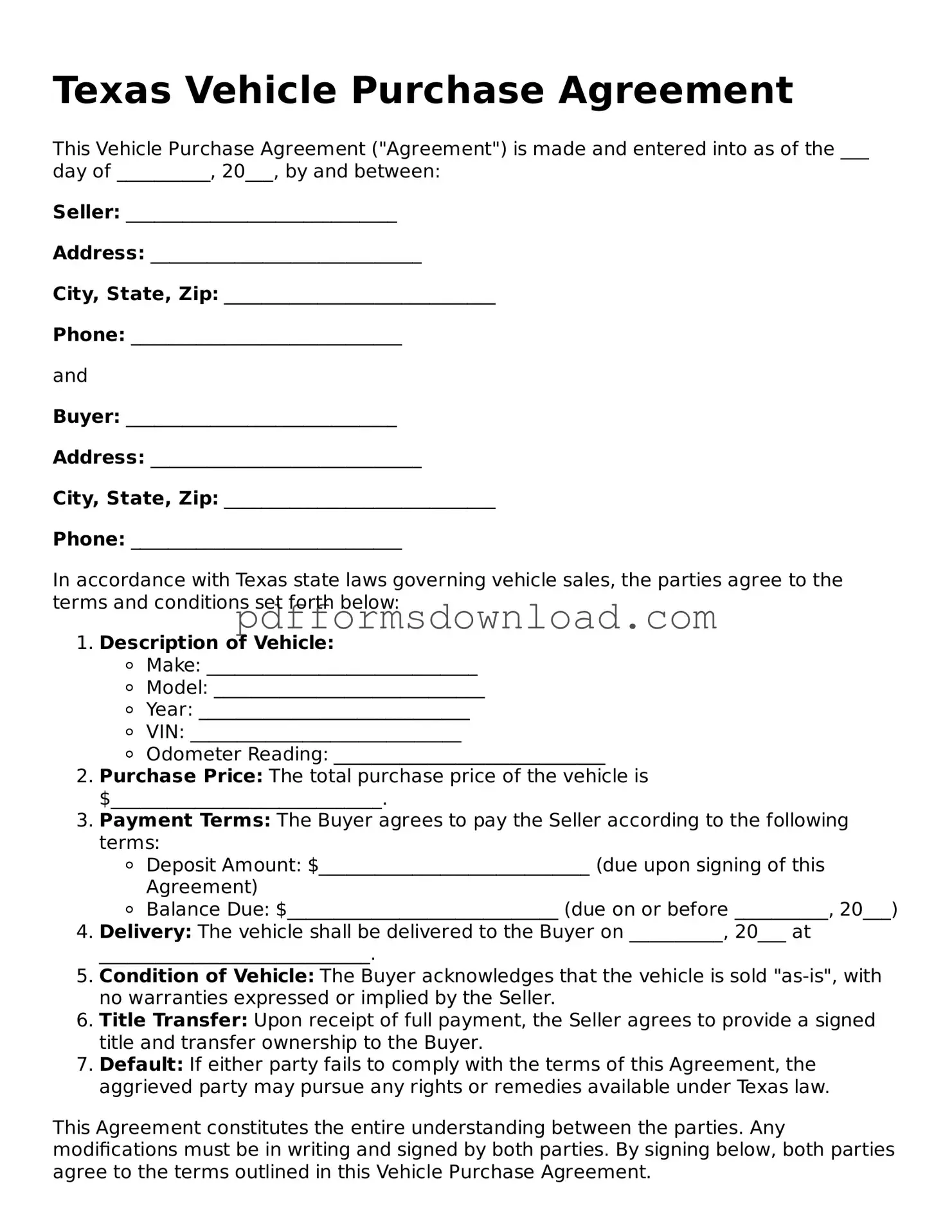What is a Texas Vehicle Purchase Agreement form?
The Texas Vehicle Purchase Agreement form is a legal document that outlines the terms and conditions of a vehicle sale between a buyer and a seller. It serves as a record of the transaction and includes essential details about the vehicle, the parties involved, and the sale price.
Why is a Vehicle Purchase Agreement important?
This agreement protects both the buyer and the seller by clearly stating the terms of the sale. It helps prevent misunderstandings and provides a reference point in case any disputes arise after the transaction is complete.
What information is included in the agreement?
The agreement typically includes the names and addresses of both the buyer and seller, vehicle identification details (such as VIN), the sale price, payment method, and any warranties or guarantees. Additional terms, like delivery details and any conditions of the sale, may also be included.
Do I need to have the agreement notarized?
Notarization is not required for a Vehicle Purchase Agreement in Texas. However, having it notarized can provide an extra layer of verification and may be beneficial if any disputes arise later.
Can the agreement be modified after it is signed?
Once signed, the agreement is legally binding. However, both parties can agree to modify the terms. Any changes should be documented in writing and signed by both parties to ensure clarity and enforceability.
Is a Vehicle Purchase Agreement the same as a title transfer?
No, a Vehicle Purchase Agreement is not the same as a title transfer. The agreement documents the sale, while the title transfer is the official process of changing ownership of the vehicle with the Texas Department of Motor Vehicles (DMV).
What happens if the seller fails to deliver the vehicle?
If the seller does not deliver the vehicle as agreed, the buyer may have legal recourse. This could involve seeking damages or specific performance, where the seller is compelled to fulfill the terms of the agreement. Legal advice may be necessary in such situations.
Can I use a Vehicle Purchase Agreement for a private sale?
Yes, a Vehicle Purchase Agreement is commonly used for private sales. It is essential for documenting the transaction between individuals and ensuring that both parties understand their rights and obligations.
What should I do if I lose the agreement?
If you lose the Vehicle Purchase Agreement, it is advisable to create a new copy as soon as possible. Both parties should sign the new document, and it's a good idea to keep multiple copies in a safe place for future reference.
Where can I obtain a Texas Vehicle Purchase Agreement form?
Texas Vehicle Purchase Agreement forms can often be found online, through legal stationery stores, or at local auto dealerships. It’s important to ensure that the form you use complies with Texas state laws and includes all necessary information.

